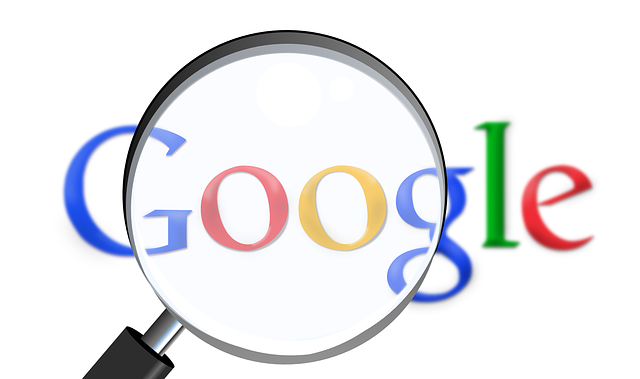Today, we are just going to talk about some of the basics of SEO and help you understand SEO and why it is important.
Table of contents
An Introduction to SEO
Search Engine Optimization is the process of optimizing a site for search engines, so search engines are able to rank your site accordingly and therefore drive more traffic to your site, when users are searching (via a search engine) for your niche, business or service. A search engine is a powerful piece of software that utilizes algorithms. Search engine algorithms are used by Search Engines to rank websites and their content accordingly. The order that websites are ranked in is a very complex and technical process; taking into account the content, the domain name, Meta tag content, relevant content and relevant content using text-modifiers among other- more complex criteria. Search Engines also take into account domain name age and whether or not a site is stagnant (no new content being added regularly).
Aim
The aim of SEO is to rank highly in a search engine; leading to more views, higher conversion rates and finally increased profit. As there are so many competitive businesses and niche markets on the World Wide Web, the conventions and standards for SEO are constantly changing and growing in popularity.
Meta Tags and the process
Meta Tags are generally comprised of the Title Meta Tag, Keyword Meta Tag and the Description Meta Tag. There are also other Meta Tags that can be used to assist in an orginizations SEO plan.
Meta tags should always be used for any site that wants to appear somewhere on the main search engines used by millions of people every day; Google, Bing or Yahoo. Paid marketing strategies available online tend to be seen as more efficient, as they can be implemented quickly, whereas SEO can take years to have maximum effect.
Every site, for the purposes of being optimized for Search Engines needs to go through a very timely process to complete the desired outcome. This process ranges from the use of text modifiers (i.e. strong, em, h1, h2, h3), the content contained withing the first paragraph on each page, title tags, meta tags, submitting site-maps to online directories and Search engine Web Master Services (Google Webmaster Tools).
Whether the use of Meta Tags will directly affect the Search Engine ranking of a site or not- it will most definitely assist in helping a web user locate the specific service they are seeking.
Misuse
Meta Tags are a very important in terms of SEO, but using them incorrectly could result in dire consequences. The incorrect use of Meta Tags could lead to the web page being banned from any or all search engines- ‘Keyword-stuffing’ is frowned down upon in the SEO community, along with irrelevant data being stored in Meta Tags.
Keyword stuffing is the act of literally ‘stuffing’ as many keywords (relevant or irrelevant) in to the keyword meta tag- This technique is usually used to gain a higher ranking in a search engine and may result in a search engines ranking’s being incorrect.
Problems
When using a Publishing Platform, such as WordPress for a web log (blog) or company website- Meta tags and their relevancy to the content on each page can vary and in turn; cause a few issues. By default, WordPress uses the same Meta data stored in the header file (header.php) for each page.
For example; if you had a WordPress Blog about Design and then wrote a post about Farming; the Meta tags would be irrelevant and therefore be cause for concern.
Along with the possible irrelevancy for Meta tag data on blogging platforms such as WordPress, the same title tag will be also applied to each page and or post. WordPress has a little bit of an understanding and appends the site title with the page or posts name then the ‘|’ (pipe) symbol. The title tag of a website or single webpage is as vital (if not more than) as relevant and appropriate as the correct use of the Meta tags.
With such a large community, WordPress has many many SEO based plugins that can now be used to avoid many negative effects that may be caused by a default WordPress website in terms of SEO.
Common
Meta Tags play an important role in SEO; perhaps one of the more common and well know practices for a website to be ranked in Google and other Search Engines. By default, whether a Web Developer is thinking about SEO or not, when they are creating the HTML shell for a site- It is common practice to utilize the title tags.
Proper use of the title tags, along with text modifiers generally provide the best results when a user is using a Search Engine to find specific information or Websites. However, the more noticeable results that a user will see when using a Search Engine is generally the contents of the Description Meta tag.
Using Meta Tags
Meta tags are placed in the
section of the HTML structure and are constructed like so:
The name attribute would hold our meta tag name or type and the content would be the content of the Meta Tag Name or Type; as defined in the name attribute.
Although there are numerous Meta tags, only a few of them have major impact on the SEO of the Website. An example of a Meta Tag that does not necessarily impact on SEO is the viewport Meta Tag; which is used to tell the browser the ratio or scale between the Website content and the viewport- the visible section within the browser.
Although the content-type meta tag may not seem to have great impact over the SEO of a Website- it will assist the Browser with defining the Character Set (charset) of the HTML document and rendering the content correctly (especially special Characters).
For example:
This meta tag will tell the browser that we have some html content and we want to render it using the UTF-8 character set.
We could also just declare our character set like so:
Including the character set, along with other web technologies standards, valid HTML is an important concept that may also contribute to the success of a SEO plan.
Title Tags
Although the title tag may not technically be a meta tag, it is a crucial part to SEO and Websites in general. The Title tag is implemented in the head element of the HTML structure like so:
The value that you give the title tag is very important, as it is shown in Search Engine Results and also displays at the top of the browser window or tab.
Description Meta Tags
The Description Meta Tag is comprised of up to ~150 characters and is used as a Description for a Website in SERPs (Search Engine Result Pages) to provide a short description about the Website. The description meta tag should be a relevant and a descriptive sentence or two. It is often good practice to state what the website contains or offers and why the user should visit it.
Description Meta Tag example: Let’s say design.example.com is a design agency; they could use the following Description Meta Tag:
Keyword Meta Tag
The Keyword Meta Tag is generally 4 – 5 ‘keywords’, that are relevant to the content of the Website. These keywords are separated by a comma (,) and can be created via the use of Google Adword’s Keyword Planner Tool or via Third-Party software. The creation of relevant and competitive Keywords is a finite process and may take months for a Web Developer to actually see results from their techniques used. One important concept to choosing keywords is to think like the user (that is utilising the search engine) and think about what they would actually type in to seach for services that you offer. The user is most likely to type in something called ‘keyphrases’, rather than single ‘keywords’.
Keyword Meta Tag example:
Ranking
Google Ranking is very important for any business or individual on the web today. To the public, Google’s SERPs (Search Engine Result Pages) ranking could be summed up as “the higher ranking a website- the better it must be”. There is some truth to this, but there is certainly a lot more to SEO. Starting with relevancy between meta tags, content and going as far as using text modifiers to ‘emphasize’ certain keywords or content.
Analyze
When it comes to SEO, there are a so many different techniques and methods that SEO specialists utilize. The most common technique in implementing SEO to a Website is to carefully analyze a short list of keywords and compare the keywords against competitors and other high-ranking Websites via Google’s Adwords’s Keyword Planner.
Tips:
- When your website contains multiple pages, make sure you carefully choose the keywords, description content and title tags for each page carefully- it is never a good idea to use the same content for these tags on all pages.
- Make use of Social Networks, ecspecially Google+ for your business.
- Make use of Google’s Webmaster tools- verify your site and submit sitemaps when you add new pages to your website.
I hope you found this resource useful!






